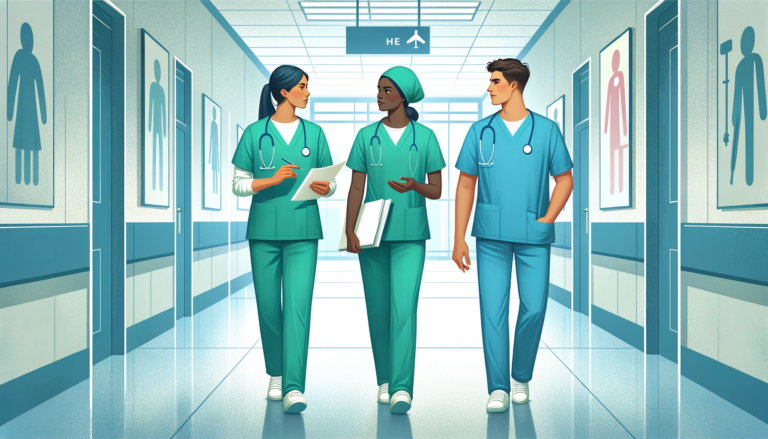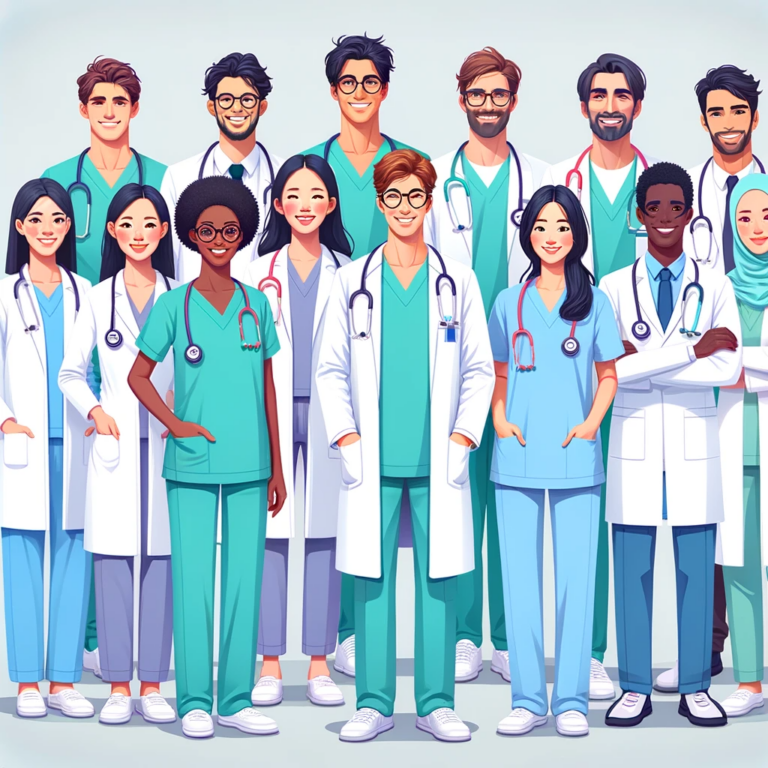Top 12 Nursing Online Classes You Can Take Right Now
The job outlook for nurses continues to grow dramatically. The U.S. Bureau of Labor Statistics projects a 12% increase in the employment of registered nurses from 2018-28. Online nursing programs offer convenient options for entry-level students interested in exploring nursing careers or working nurses eager to advance in the profession.
The burgeoning demand for nurses means now is a great time to pursue or advance an existing career in the profession. Online nursing programs provide convenient, comprehensive pathways for entry-level students interested in exploring nursing careers as well as experienced nurses looking to further their studies and take on additional clinical responsibilities. Course requirements vary depending on the degree level and intended specialization sought; however, common courses typically provide foundational knowledge needed to fulfill state residency criteria, prepare graduates for the national council licensure exam, and start a rewarding career as a registered nurse.
10 Common Nursing Classes Required for a BSN
1. Fundamentals of Nursing
Fundamentals of Nursing provides an invaluable introduction to the role of nurse and the knowledge and skills needed for success in clinical practice, preparing students for a successful future in health-care. Through engaging learning activities such as discussions, demonstrations, and simulations, learners will gain not only an understanding of relevant topics such as medical records, health promotion and treatments, but also explore their professional values, ethics and safety practices.
Incorporating cultural competency into the learning goals offers a valuable opportunity to become knowledgeable about different perspectives when delivering care. Overall, this course equips students with essential fundamentals for success in their journey towards becoming an exceptional nurse.
2. Nursing Health Assessment
Nursing health assessments are comprehensive and multifaceted processes that help to evaluate the overall well-being of a patient. It involves the skillful combination of history-taking, inspection, palpation, percussion, and auscultation to build up an accurate near-picture of their condition.
Novice nurses have the opportunity to refine these abilities by obtaining patient histories, performing physical and psychological assessments, processing lab tests and gathering other relevant data as they form an effective nursing plan. The comprehension and proficiency gained from undertaking these exercises provides them with the capability to assess patients of all ages accurately hence guaranteeing quality care across the lifespan.
3. Human Growth and Development
Understanding human growth and development is an essential component of providing effective and safe nursing care. This course provides enrollees with the opportunity to explore the complexity of human development, exploring areas such as physiology, cognition, and psychology. Learners gain a deeper understanding of how family background, trauma, and sociocultural factors play a role throughout the lifespan.
What sets this course apart from other courses is its emphasis on therapeutic communication techniques and how this can benefit patient interactions. The concepts taught in this course are invaluable for nurses aiming to provide quality care for their patients.
4. Anatomy
Learning about the human body and its organ functions can be a fascinating and rewarding experience. This introduction to the subject delves into all of the components of the body, from cellular structures to muscular, nervous, and sensory systems. Clinical examples and laboratory work help students gain an understanding of how these related body systems cooperate to maintain a homeostatic environment for health.
Students also learn first-hand how disease and pathogens can disrupt the normal structure and functioning of living things. Every aspect of this introduction is essential for gaining a comprehensive view of the complex interactions within our body that are necessary for life as we know it.
5. Pharmacology
Pharmacology is a dynamic field that focuses on the study of drugs for their therapeutic use in various medical conditions. This important branch of medicine, developed over centuries, delves into the effects of all sorts of drug substances and seeks to maximize the beneficial outcomes while minimizing side-effects.
Aiding pharmacologists in their mission is a battery of modern day technologies such as advanced analytics, specialized instruments and cell imaging which can help them understand exact mechanisms of how drugs work and affect humans – both positively and negatively. With ever-increasing understanding in this area, the potential to improve health outcomes or even prevent diseases is becoming more tangible every day.
6. Microbiology
Microbiology is a fascinating field of study, as it delves into the unseen and complex world of microscopic organisms. It offers researchers with an opportunity to better understand the dynamics of their environment on a more intimate level. Microbiology provides invaluable insight into public health, agriculture, industry, and the impact of evolution on different types of microbes.
From the pharmaceutical development of vaccines to sustainable farming practices, these applications have revolutionary implications that may one day lead to major scientific breakthroughs or advances in our quality of life. Additionally, microbiology also contributes an unprecedented level of accuracy in diagnosing and treating diseases. Although this field focuses largely on factual observations and repeatable experiments, its data-driven approach allows us to observe global trends in real-time that can directly inform public policies and regulations.
7. Physiology
Physiology is a fascinating field of study that provides insight into the complex internal workings of the human body, as well as how to diagnose and treat diseases or other health challenges. Studying physiology requires a comprehensive knowledge of molecular and cell biology, genetics, organ systems, brain functions and hormonal influences on behavior. By learning about all these components, students understand how to evaluate the functioning of bodies in a variety of circumstances. This knowledge gives insight into both normal processes and pathological states – information that can be used in the diagnoses and treatment of illness.
8. Community Nursing
This investigation of the nursing profession within the public healthcare context provides students with a wealth of knowledge regarding epidemiology and environmental hazards, equipping them as they take on projects such as health promotion, disease prevention, case management, and community assessment.
By focusing on these areas, students gain insight into the political and economic factors affecting healthcare delivery and access for individuals, families, and groups – particularly those that may be at-risk or underserved. With these combined tenets in mind, participants leave this program better prepared to address current issues within the realm of public health and pursue rigorous research opportunities.
9. Theory of Clinical Practice
This theoretical foundations of clinical practice course provides nurses with the tools they need to provide competent, patient-centered care in a variety of settings. Nurturing organizational leadership skills and mastering technology-based patient care are just two components of this groundbreaking course.
Moreover, learners will gain insight into ethical decision-making as they work through case studies, class projects, and simulations. A higher level of professionalism is cultivated through these activities, ultimately empowering nurses to deliver premiere healthcare up to the standards of the nursing profession.
10. Leadership and Management
The upper-division seminar offers an in-depth exploration of the fundamentals of leadership and management in nursing. Through this course, aspiring nurses develop a set of skills that are indispensable to their career, such as budget and resource allocation, staff scheduling, personnel evaluation, risk management, and workplace quality.
Furthermore, the program also introduces current trends in healthcare organizations to provide students with an understanding of modern systems leadership and patient safety. These topics help strengthen industry proficiency by developing abilities to resolve conflicts effectively. Allowing a crucial application of theoretical principles in real-world settings for student success, this class is a great choice for those seeking knowledge about nursing leadership and management.
11. Nutrition
With the advent of ever changing diets and health trends, it can be challenging to keep up with what is considered a healthy diet and lifestyle. Nutrition today is so much more than just focusing on our eating habits; rather, it should encompass how we move, what we eat as well as how and why we eat.
Talking to a nutritionist or dietitian can help to give an overview of what works best for your individual needs – taking into consideration age, activity levels and preferences. Furthermore, this holistic view on nutrition will help promoting not only good physical health but also mental health that might even help navigating through difficult times. Generally speaking, focusing on fresh fruits, vegetables and wholefoods while limiting processed food intake is a great first step in creating healthy habits.
12. Pathophysiology
Pathophysiology is a branch of science that studies the changes in structure and function of the body’s cells, organs, and systems in response to disease or injury. It delves into how these changes modify normal physiological processes and cause pathologic effects, such as development of cardiovascular diseases, tumor growth, or diabetes.
Pathophysiology research has the potential to provide insight on genetic predisposition to disease which can be translated into basic preventative medicine measures such as health screenings and lifestyle modifications. With modern advances in technology allowing us to better understand cellular functions, in-depth knowledge of pathophysiology will serve as a vital resource in shaping healthcare policy going forward.




